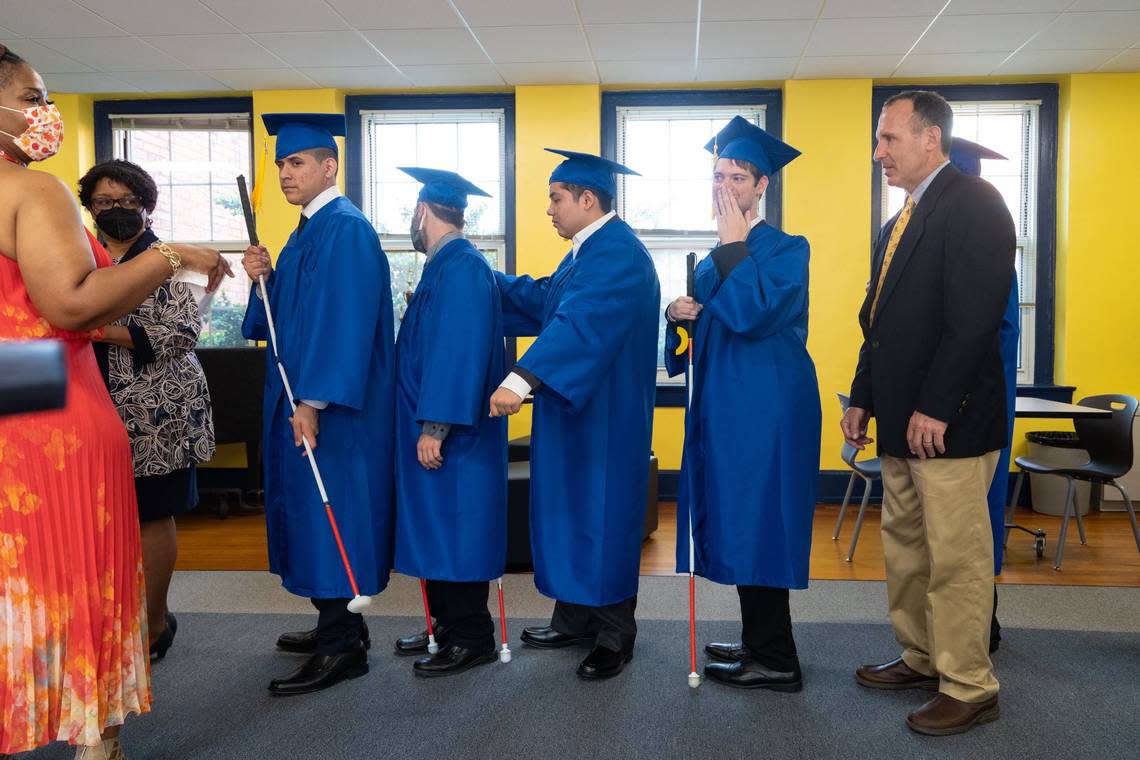Cooper vetoes bill shifting control of NC schools for deaf and blind students
Democratic Gov. Roy Cooper has vetoed legislation that turns control of North Carolina’s three residential schools for deaf and blind students over to new boards chosen mainly by Republican state lawmakers.
Senate Bill 593 would shift oversight of the Governor Morehead School for the Blind in Raleigh, the Eastern North Carolina School for the Deaf in Wilson and the North Carolina School for the Deaf in Morganton from the State Board of Education to newly created boards of trustees.
“Not only is this bill blatantly unconstitutional, it continues this legislature’s push to give more control of education to Boards of Trustees made up of partisan political appointees,” Cooper said in his veto message Monday.
Cooper pointed to how the GOP majority in the General Assembly previously took away the executive branch’s ability to appoint trustees to the UNC System and to two of the state’s community colleges.

SB 593 was among four vetoes announced on Monday. Other vetoes dealt with legislation such as requiring sheriffs to cooperate with federal immigration officials and making it easier for people to get back their concealed-carry gun permits if they let them lapse.
GOP lawmakers would appear to have enough Democratic support to override Cooper on SB 593. It was unanimously passed by the House and was approved in the Senate on a 40-4 vote. But Cooper has convinced Democrats before to switch their votes to sustain his veto.
‘Erosion’ of state oversight
Currently, the state board governs the three schools, including setting their admissions criteria. The state superintendent, through the N.C. Department of Public Instruction, administers the schools.
The state board currently has a Democratic majority due to the appointments Cooper has made during his tenure.
Under the legislation, each school would have a five-member board of trustees that would have powers like a local school board. Two members would be appointed by the Senate, two by the House and one by the governor.
The legislation would phase in the transition, with the new boards running the schools beginning in the 2023-24 school year.
Sen. Warren Daniel, a Burke County Republican, said during the floor debate that the bill has the backing of the N.C. School Boards Association and DPI.
But in his veto message, Cooper pointed to how 80% of the trustees would be appointed by the legislature. He said these new trustees “may or may not know how to run these schools.”
“The students at the schools deserve steady, knowledgeable leadership rather than becoming a part of the erosion of statewide education oversight,” Cooper said.
For more North Carolina government and politics news, listen to the Under the Dome politics podcast from The News & Observer and the NC Insider. You can find it at https://campsite.bio/underthedome or wherever you get your podcasts.
